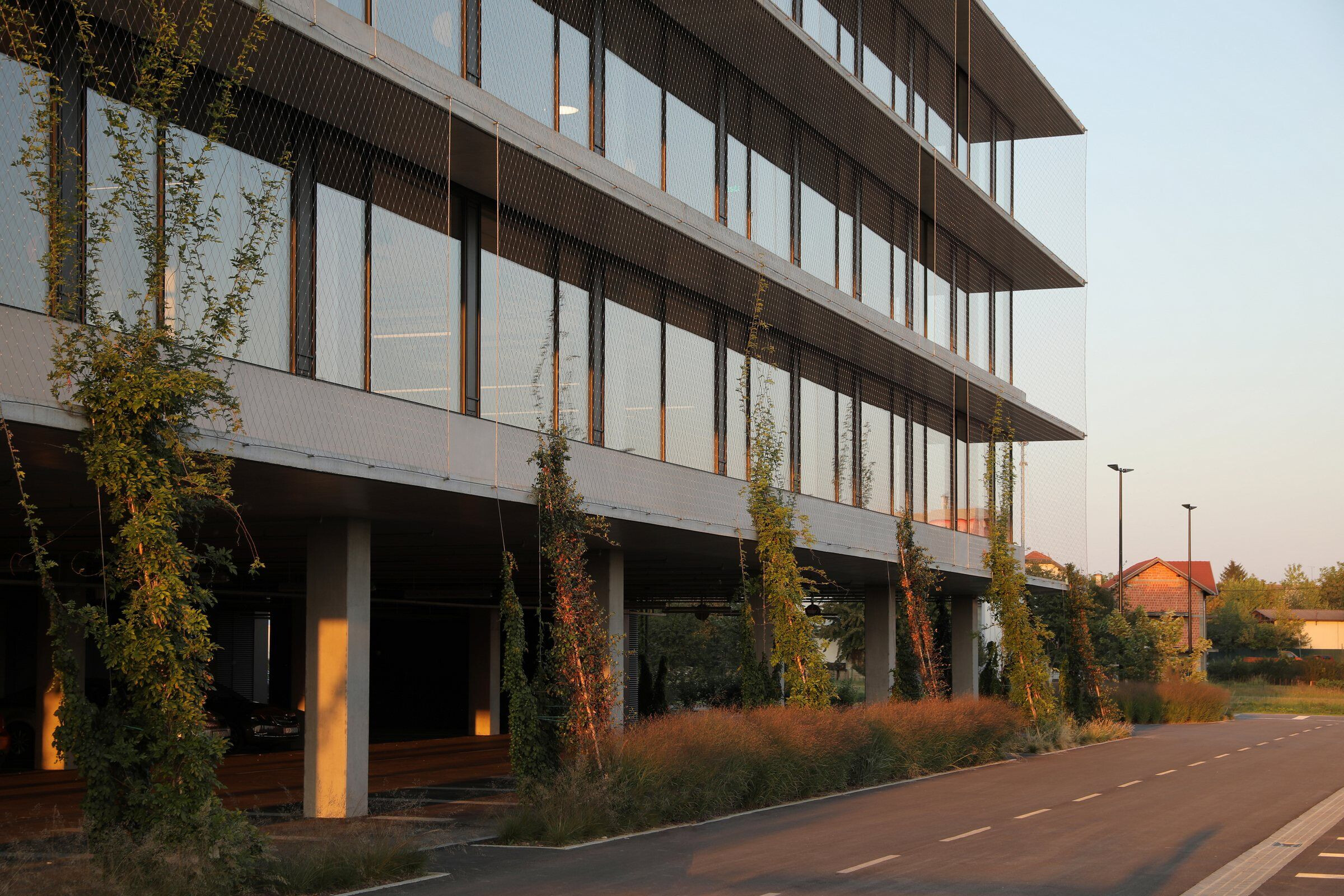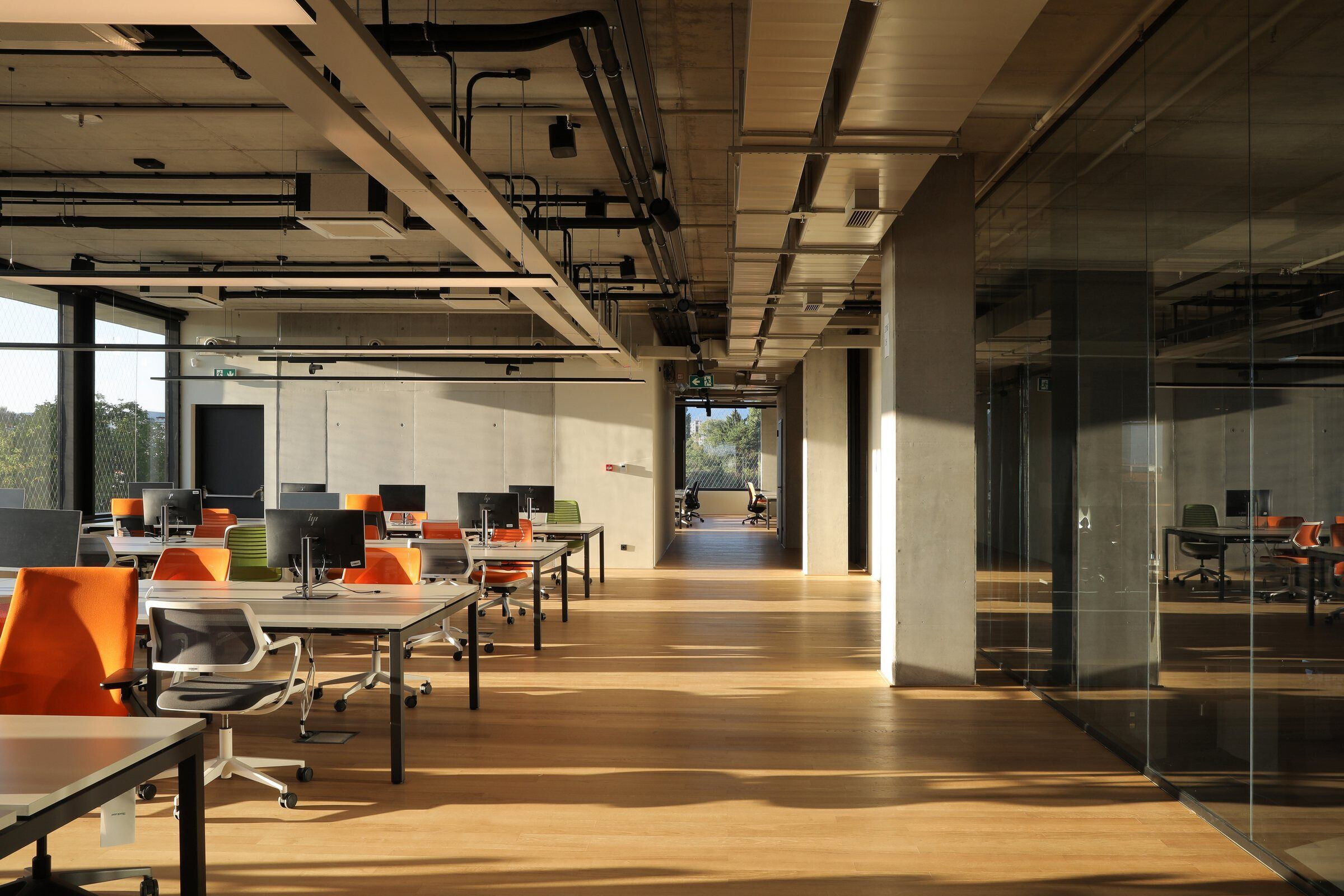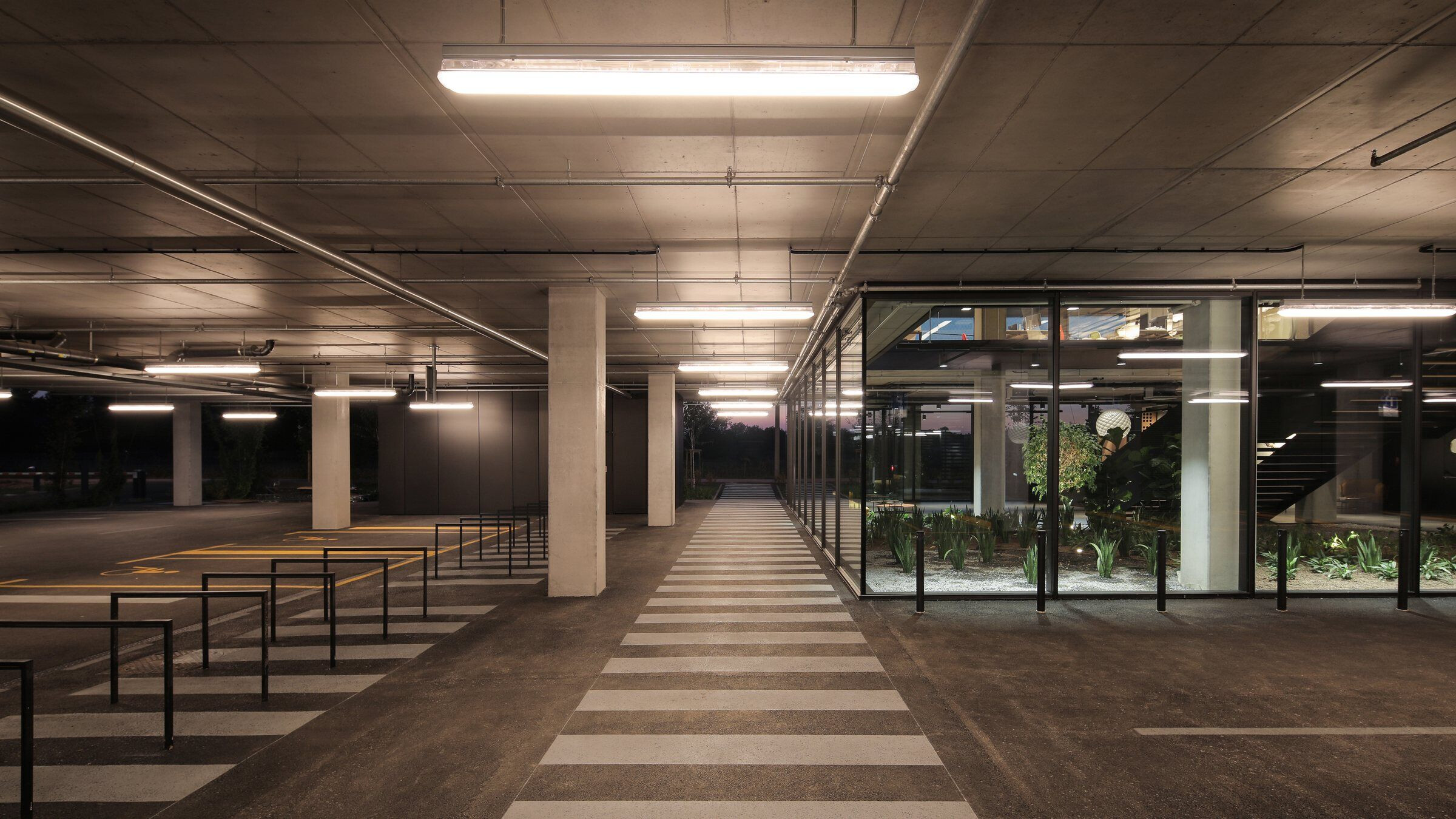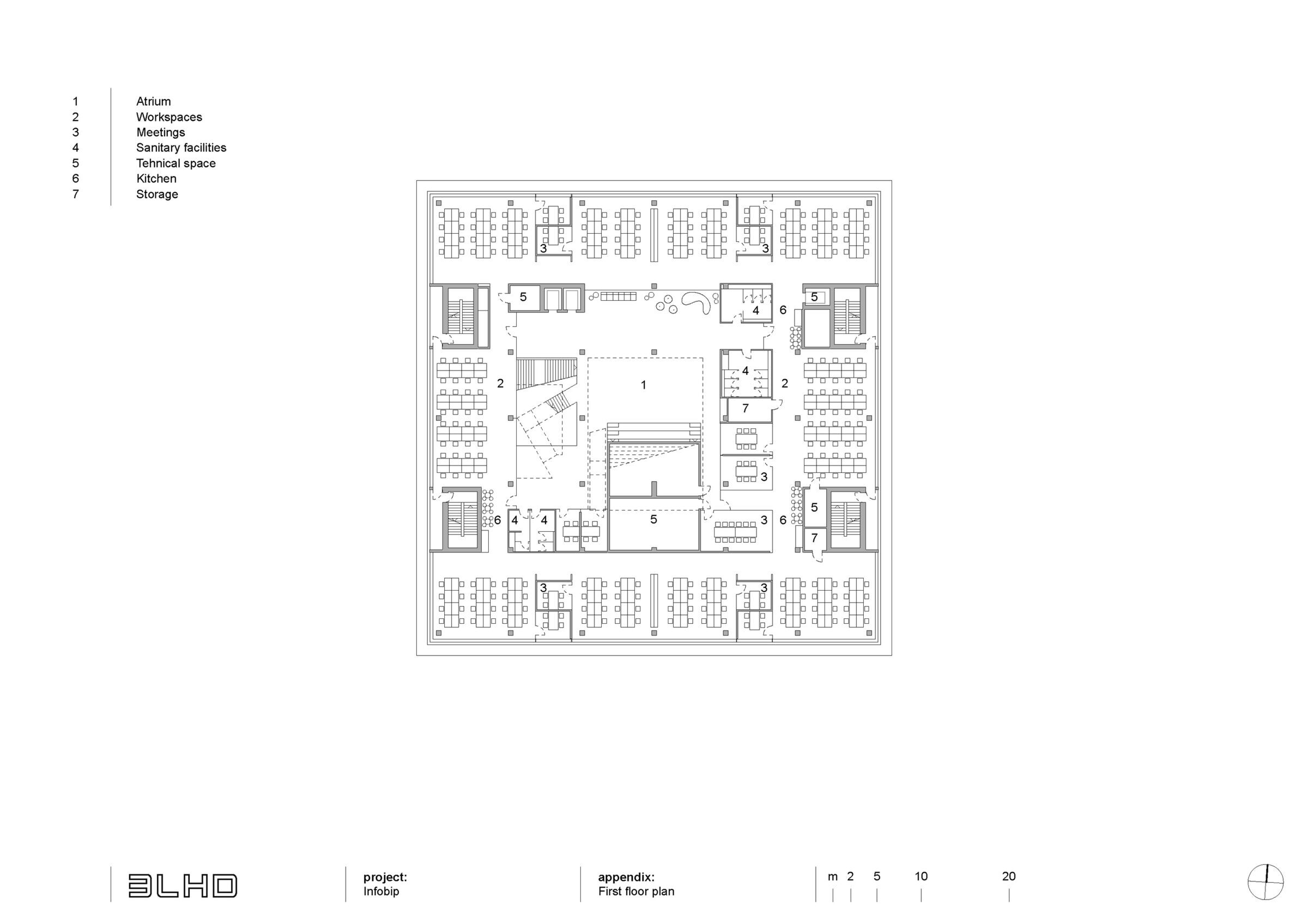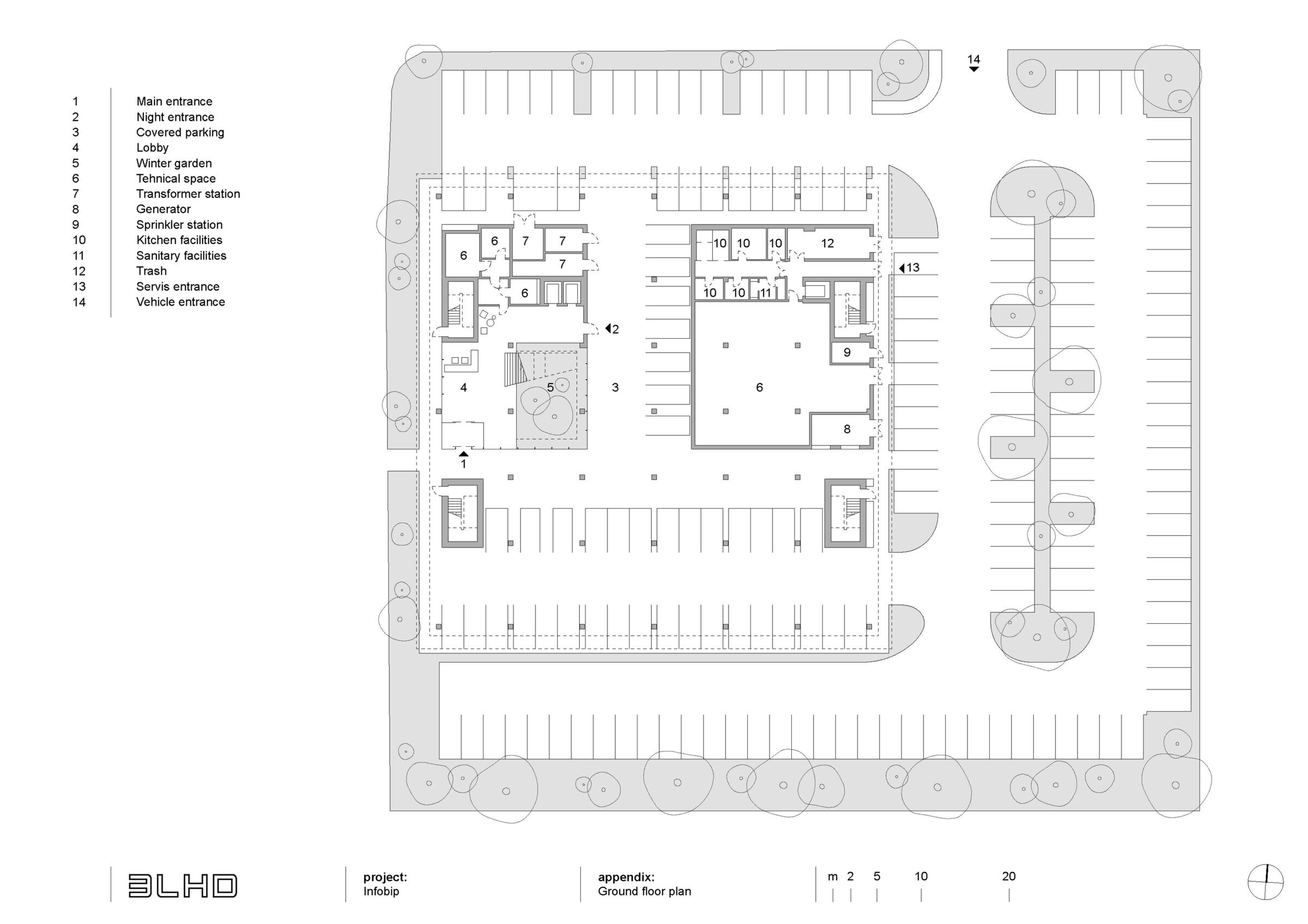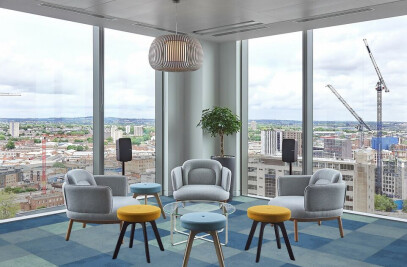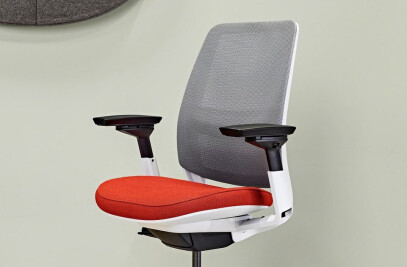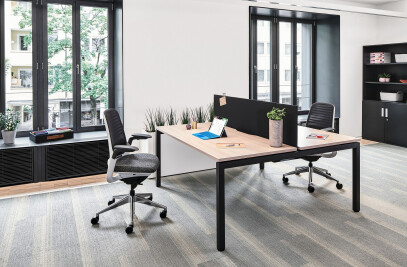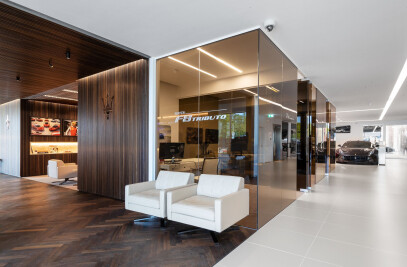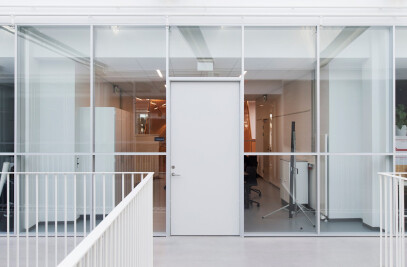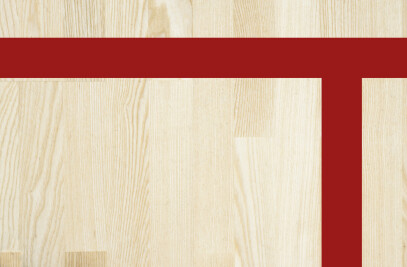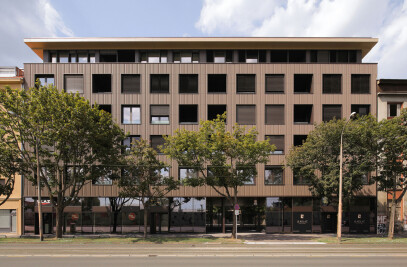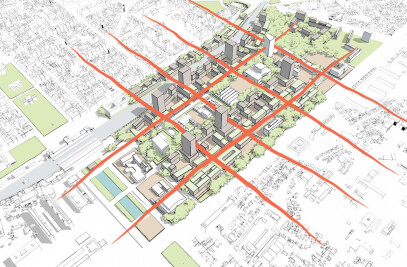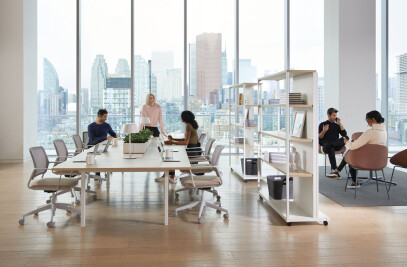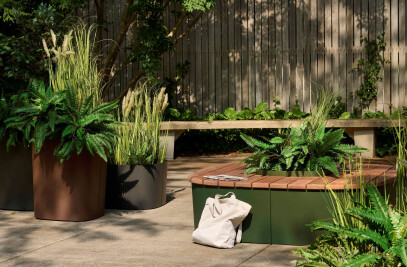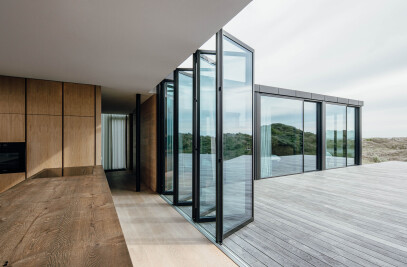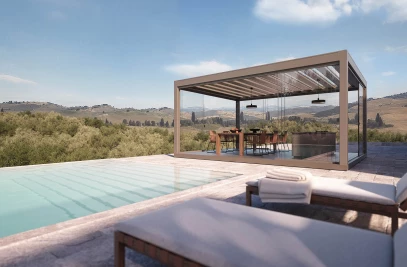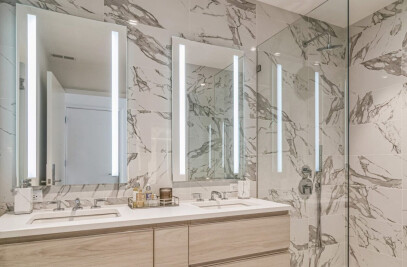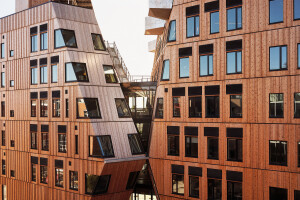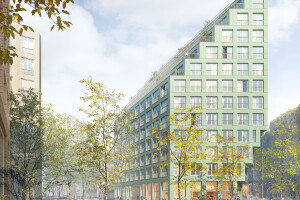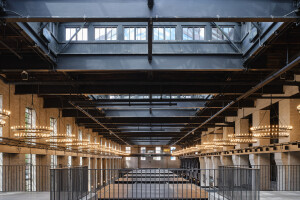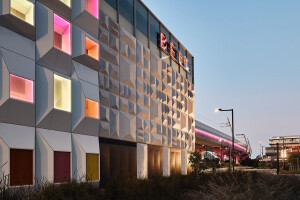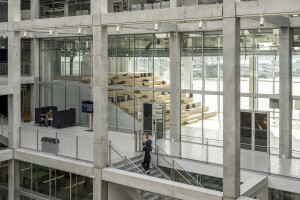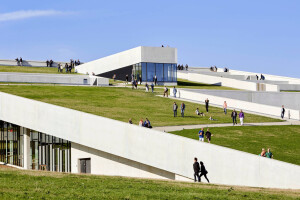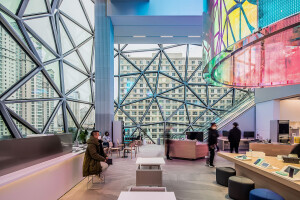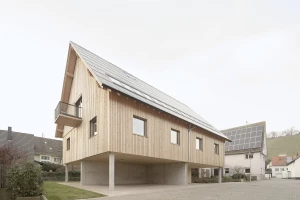Due to its rapid growth, the unicorn IT company Infobip commissioned a new hybrid building in Zagreb. The company chose a location on the southern edge of Zagreb that, though not prestigious, is well connected in terms of infrastructure. The plot is located in an entropic and poorly regulated area with low-rise medium-density multi-dwelling buildings lacking both articulated public space and natural surroundings.
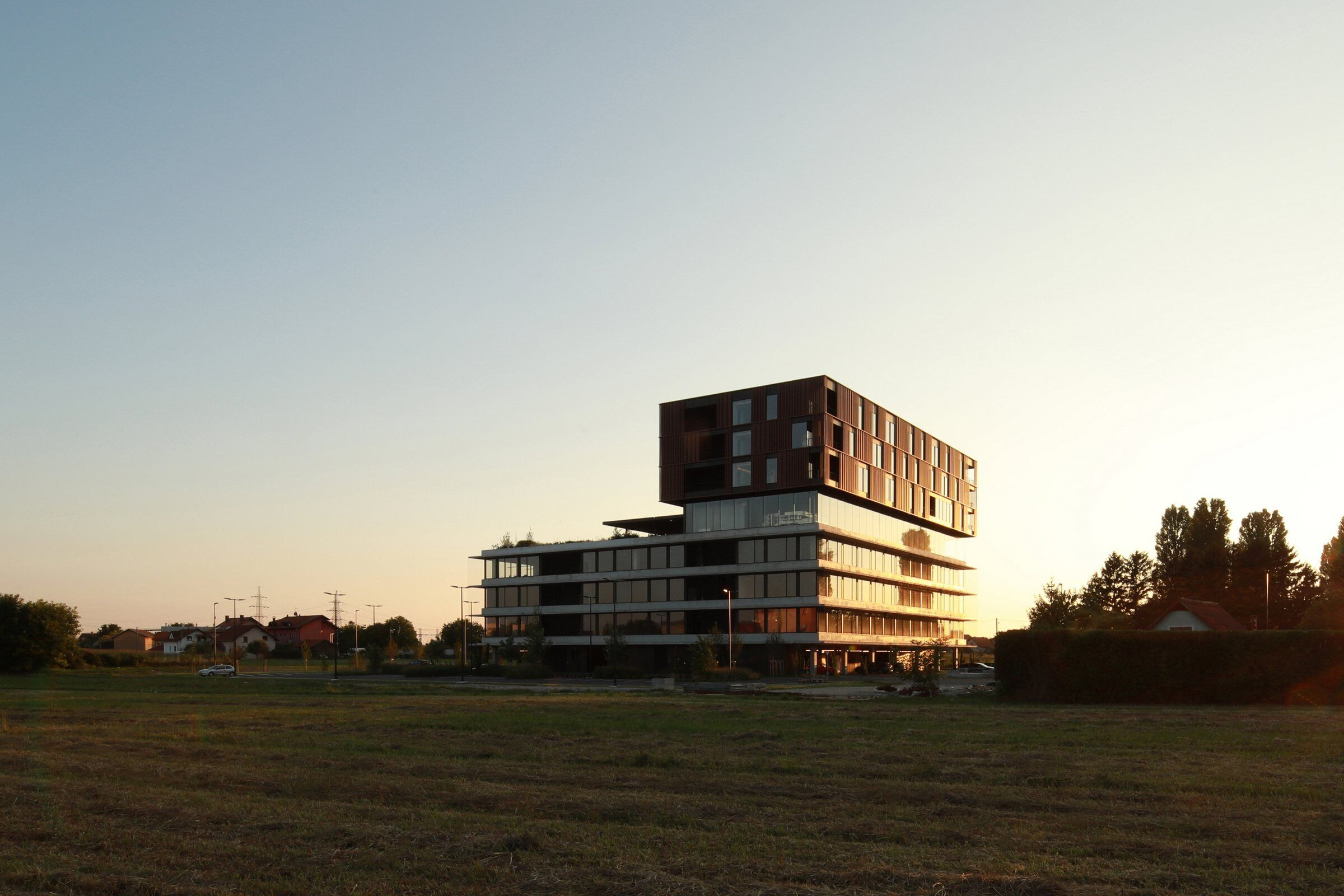
This prestigious investor’s campus with highly qualified employees had to compensate for these shortcomings, which is why the building is designed as a self-sufficient organism that provides its employees with everything they need during the work day, and even beyond. The investor requested that, in addition to the offices, a residential section be created for employees and guests, as well as other accompanying facilities such as a conference hall. The hybrid character of the project has led to the concept of stacking the spatial and programme elements on top of each other. The base of the building contains offices gathered around a central atrium, and the slender vertical block on top of it houses the residential units. Transitional floors play a key role in the building's spatial organisation.
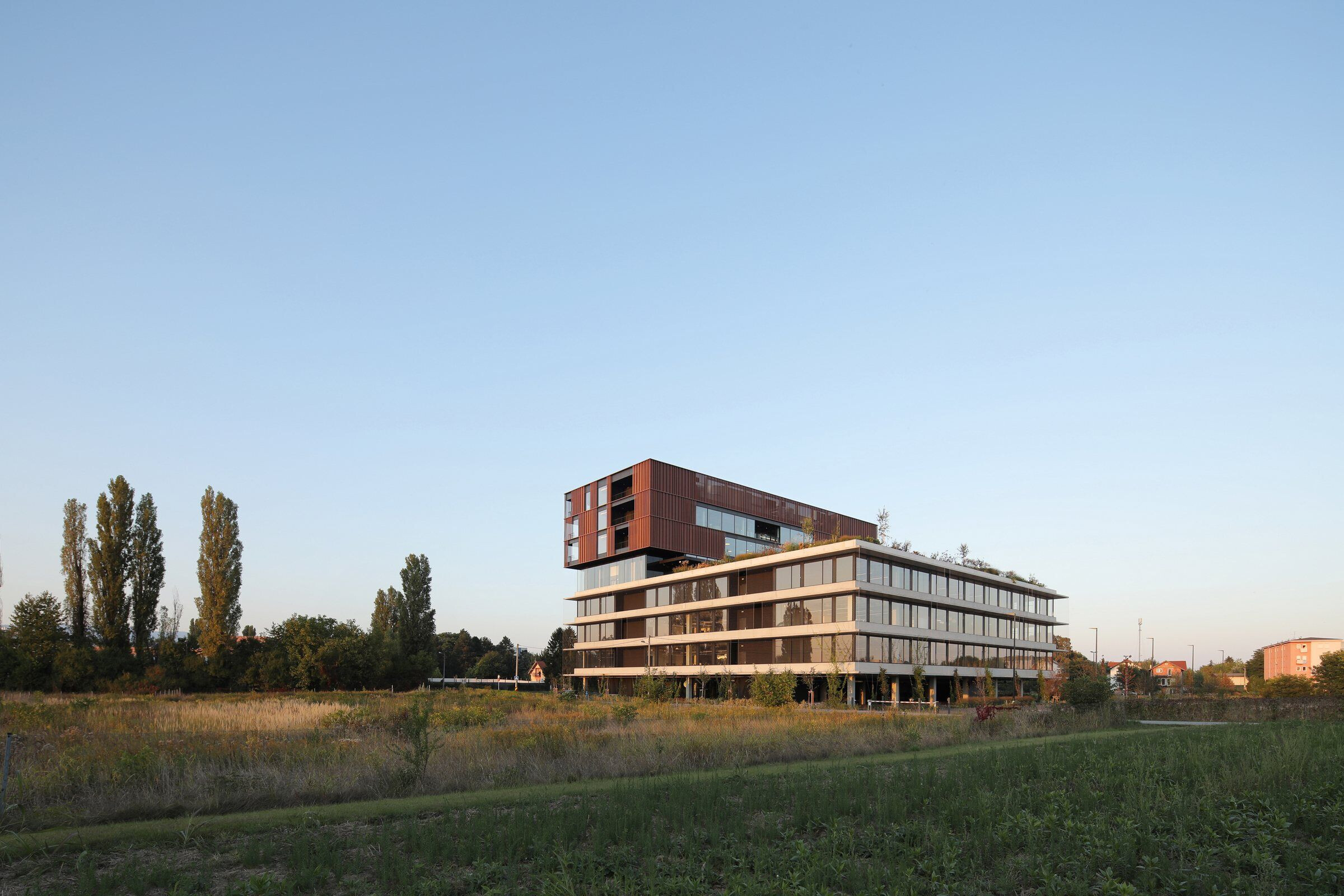
The ground floor, with an open garage and entrance, is based on the idea of a “drive-in” office, necessitated by the suburban context. The "piano nobile" on the 4th floor, featuring a restaurant, conference hall and a large terrace-park, connects the base and the vertical block. It is a place of rest and informal gatherings and a link between the permanent and temporary users of the building. This systematically reflects the scenario of the transition between the different urban, programmatic and social landscapes in the cross-section of the building.
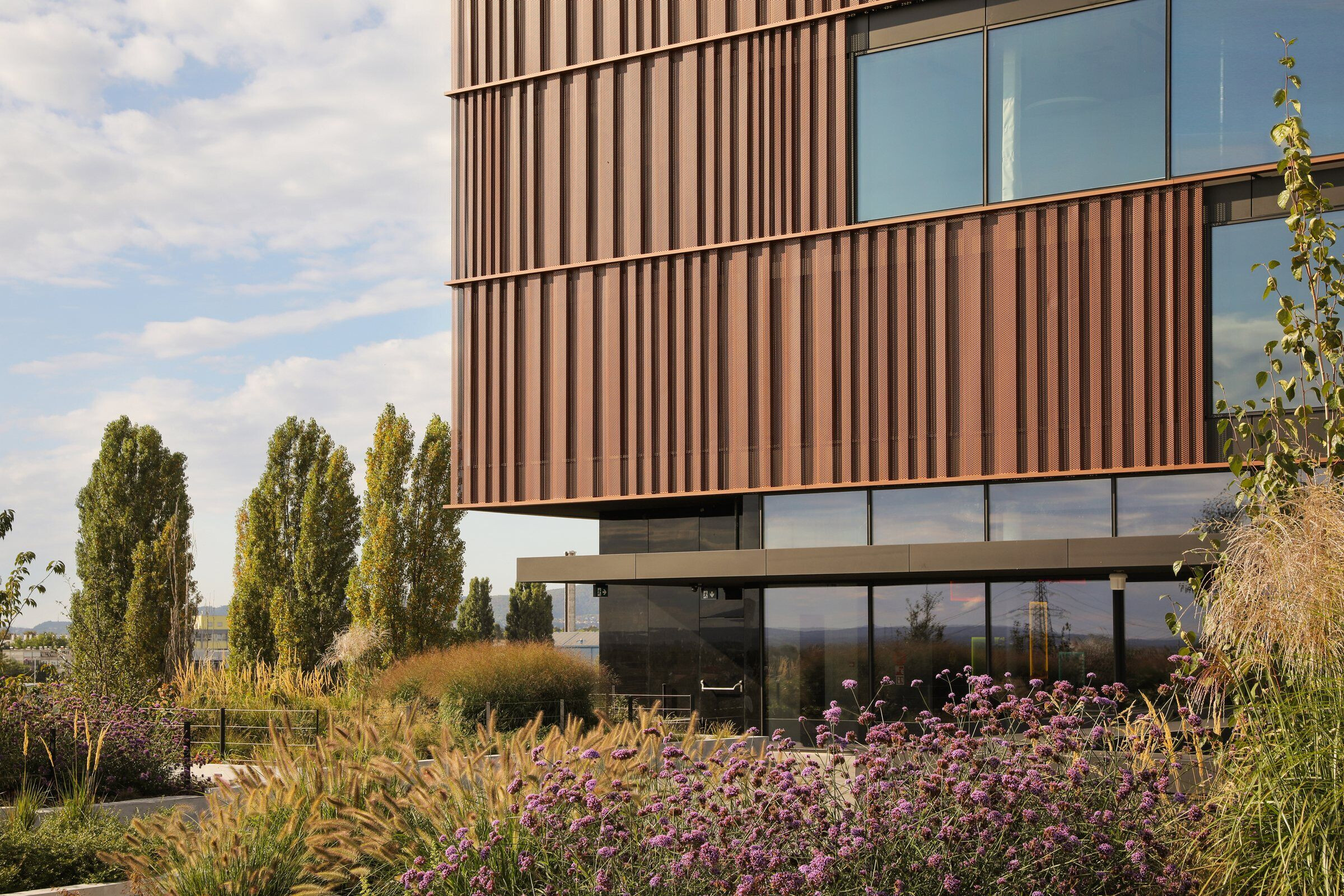
All of the constructive elements are carefully coordinated, while the structure and infrastructure of the building are explicitly laid bare as part of the building's interior and exterior design. The building clearly functions as a spatial and technological organism that is complete unto itself, demonstrating a "functional and conceptual transparency".
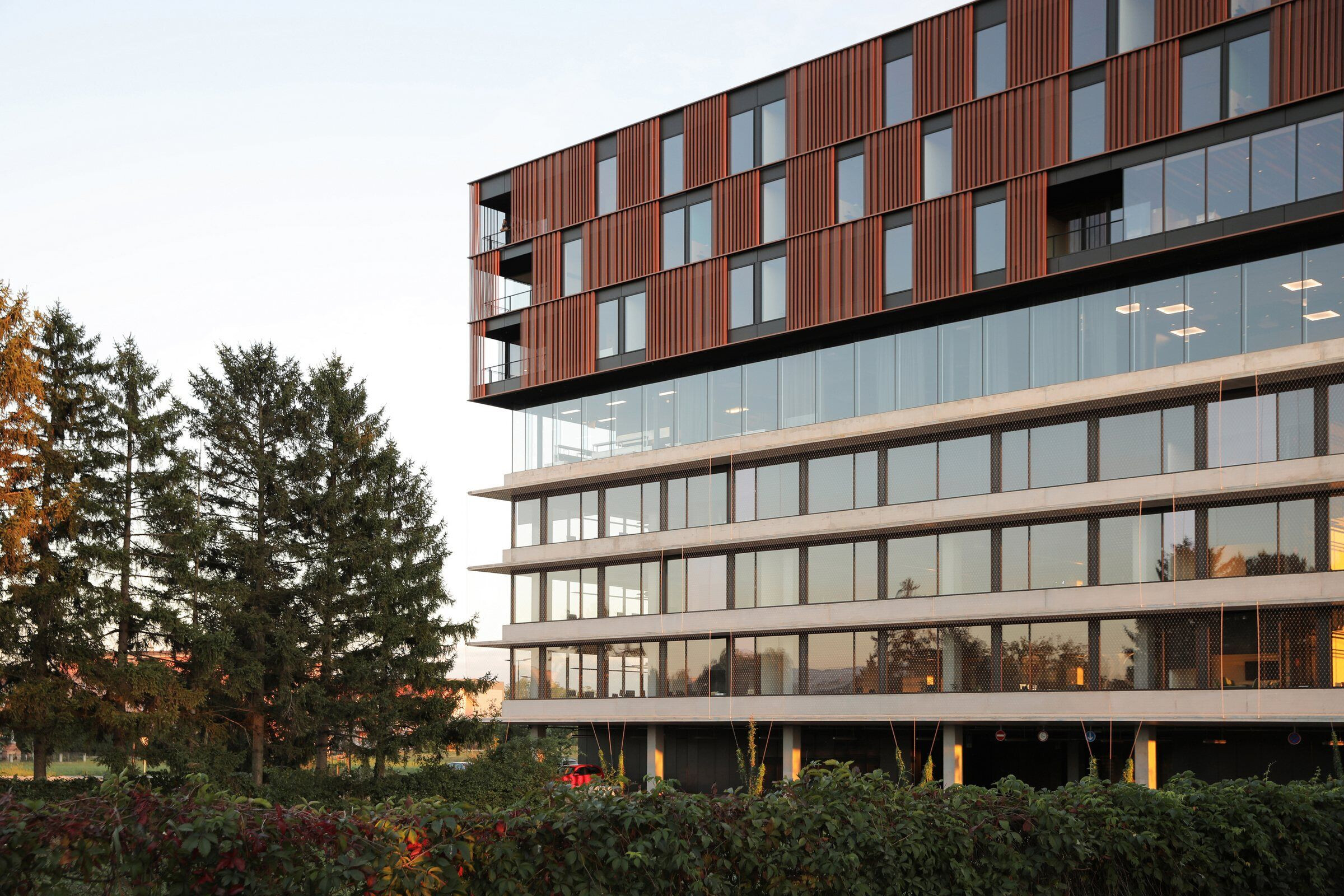
The Infobip building offers a stimulating work environment, introduces into the suburban entropic landscape a cultivated architectural complex that reflects the high ambitions of the company that it accommodates. The project demonstrates that it is the peri-urban areas on the edge of the city, unencumbered by issues of identity, historical heritage and other parameters, that will be best suited as a proving ground for architectural exploration and the testing of typologies that are self-sufficient, but not autistic.
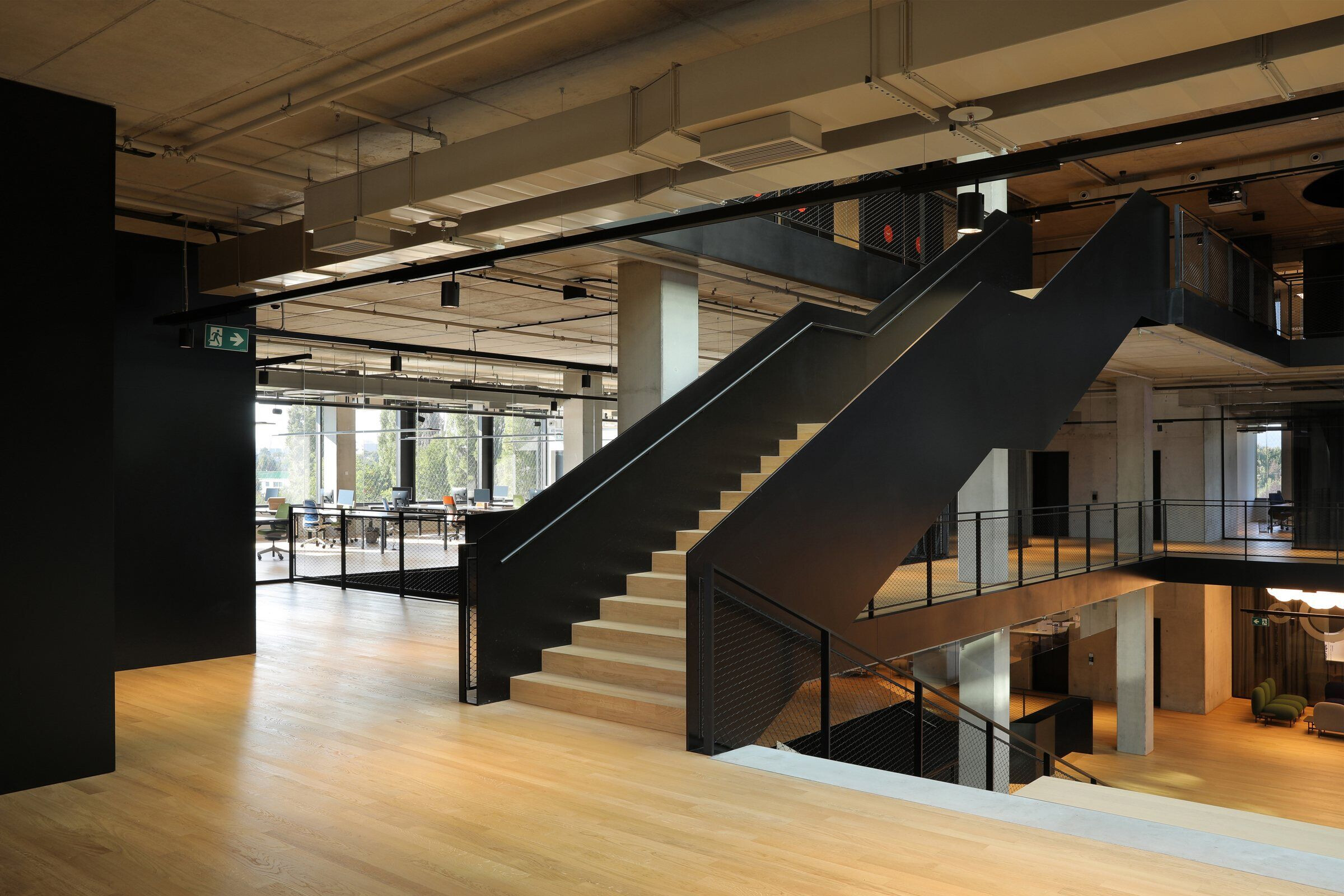
An interesting feature of this project is the pioneering application of the VOLUM3 platform for the cooperation of all participants in design, construction and site supervision phases.
The Infobip campus is one of the first projects in which the VOLUM3 platform was used for communication and project management from the development phase to construction.The building was built by 35 companies and all communicated through the platform: 139 users used the software every day.They generated (and solved) more than 1700 individual tasks, more than 200 meeting minutes.
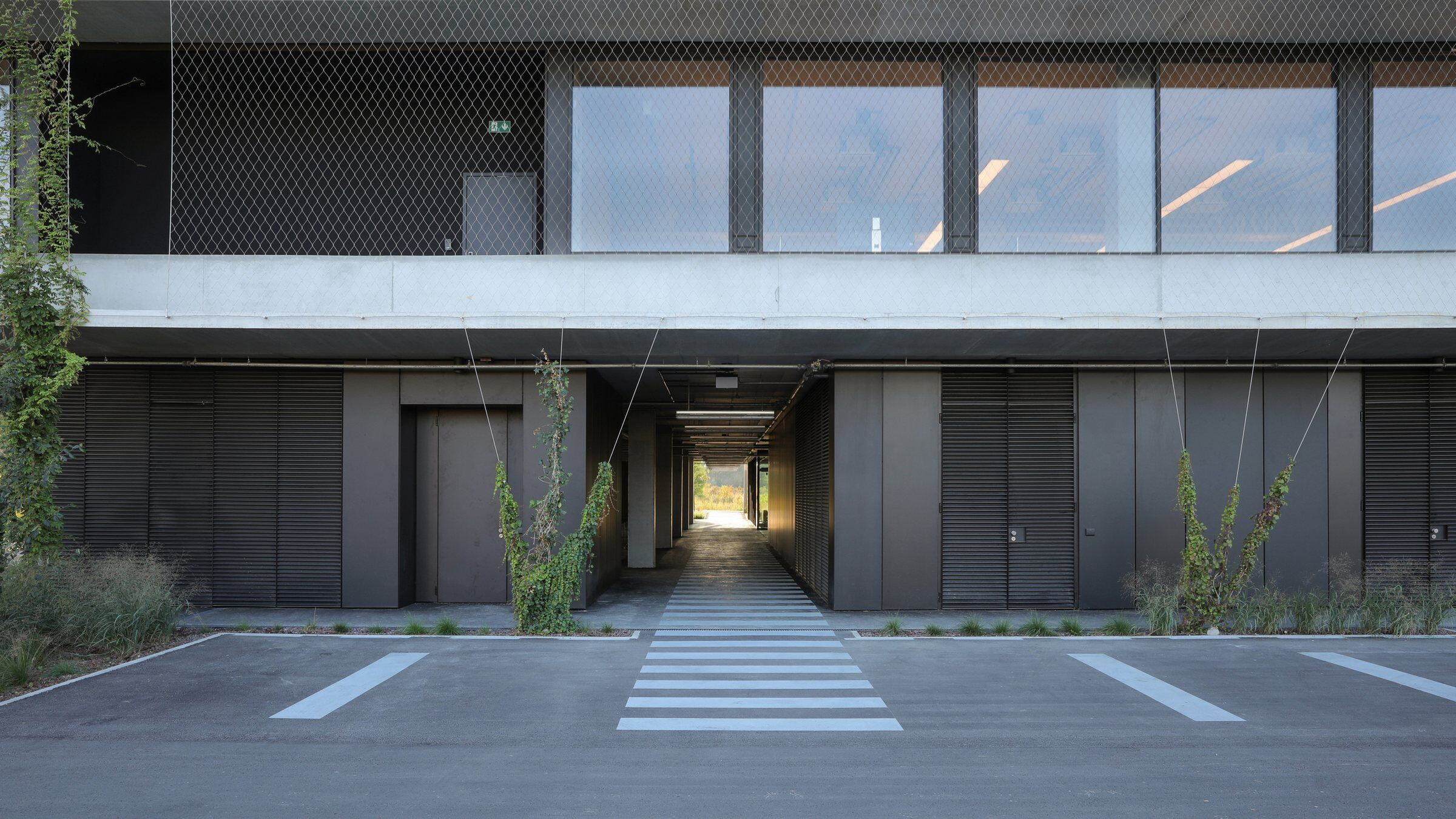
More than 1,200 drafts were made, without revisions, and there were more than 190 of these revisions and changes. All drafts and the complete workshop documentation was submitted through VOLUM3.
Team:
Structural engineering: Ivan Palijan (Palijan)
Façade structural engineering: Josip Červar (Stratura)
Building physics: Mateo Biluš (AKFZ studio)
Landscape design: Sanja Bibulić (Studio KAPPO)
Fire safety: Maksim Carević (Inspekting)
HVAC, Gas installation project: Ivica Zubčić (B.E.S.T. projekt)
Plumbing and drainage and hydrant network: Milan Bobanac (Bobanac)
Electrical engineering and fire protection system, substation: Mladen Stošić (Elektroplan)
Traffic planning: Boris Leović (C5 KONCEPT)
Elevators: RokPietri (PPN projekt)
Sprinkler installation: Nenad Semenov (APIN projekt)
Geodetic survey: Marko Cindrić (GeoFocus)
Exposed concrete technology: RokErcegovič (PRO-S (RokErcegovič))
Bill of quantities: DinkoŽele (Pro elemento)
Special projects - kitchen: Sandi Matković (Gastrotim)
3D visualization: Branimir Turčić, Mario Harni
Site supervision: PDM savjetovanje
Main contractor: Radnikd.d., Križevci
Subcontractors: Zlaring, M.P. Pemont, Elektrorad, Alarm automatika, Apin, M.I. Hršak, Tehnoplast, BetonLučko, Roplast, Oblikovanjeprostora, Pendoor, Interijeri Buden, Gastro – Tim, Elitimo, FSB, Delight, Hella tehnikazaštiteodsunca, Dives rasadnikivrtovi, Geoservis As, Bagarićusluge
